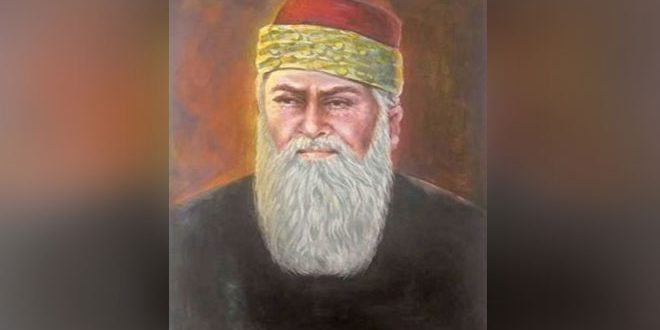The eighteenth century witnessed an Arab scientific and cultural renaissance, one of the pillars of which was the first pioneer of the art of Al-Qudud Al-Halabiya (traditional songs of Aleppo), the son of the city of Homs, Sheikh Amin Al-Jundi.
Sheikh Amin al-Jundi, who lived between 1766-1840 and was nicknamed “The Sun of Poets”, is considered one of the most prominent figures of poetry and music in Syria. He led his life moving between Damascus, Aleppo, Tripoli, and Egypt where he drew knowledge from its scholars and thinkers before settling in his hometown of Homs until his death.
Among the scholars and writers who taught him in Homs were Sheikh Muhammad al-Tibi and Youssef al-Shamsi, and from Damascus he took knowledge of its scholars, foremost of them were the famous Sufi scholar Sheikh Omar al-Yafi, Sheikh Ahmad al-Attar and Abd al-Rahman al-Kuzbari.
Sheikh Al-Jundi is considered the most famous poet who put many of the poems that were later known as Qudud, which are still circulated among the people and sung by the giants of original art.
Al-Jundi’s poems were collected and printed more than once after his death. The book titled (The Diwan of Sheikh Amin Al-Jundi) collected a group of chapters of poems.
Sheikh Amin Al-Jundi had a great role in preserving Al-Qudud, and in briefing us on the art of singing in the 18th century, that is, before the appearance of the recording machines, by transmitting these songs from one generation to the next, so that Radio Aleppo, upon its founding, played a major role in this field. .
There are many Syrian poets and musicians who followed the path of the first pioneer in the art of Qudud, among them Abd al-Hadi al-Wafa’i (1843-1909), the Artist Mohammad Khaled Al-Shalabi (1867-1929) and the artist Abu al-Khair al-Jundi (1876-1939).
Inas Abdulkareem

